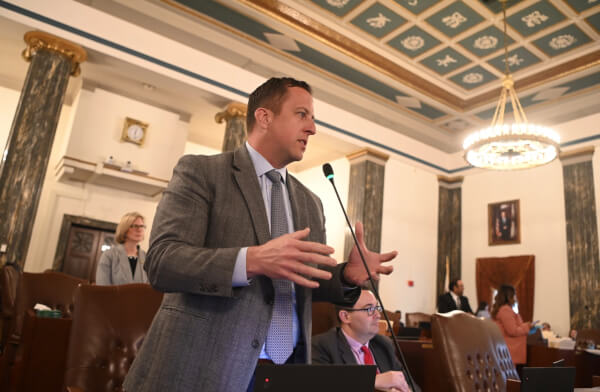Study on which states vaccinate the most and the least from WalletHub
With vaccines preventing 4 to 5 million deaths worldwide per year, according to the WHO, the personal-finance website WalletHub today released its report on 2025’s States that Vaccinate the Most, as well as expert commentary.
In order to find out which states vaccinate most, WalletHub analyzed the 50 states and the District of Columbia across 16 key metrics, ranging from the share of vaccinated children to the share of people without health insurance to the flu vaccination rate among adults.
 “Seeing as being anti vaccination has become trendy in some circles and misinformation is all over the internet, it’s more crucial now than ever to spread awareness of the benefits of vaccines and make sure as many people as possible receive potentially life-saving immunizations. The states that vaccinate the most provide the safest environments when it comes to public health, as the likelihood that the next outbreak will begin or spread there is minimized,” said Chip Lupo, WalletHub Analyst.
“Seeing as being anti vaccination has become trendy in some circles and misinformation is all over the internet, it’s more crucial now than ever to spread awareness of the benefits of vaccines and make sure as many people as possible receive potentially life-saving immunizations. The states that vaccinate the most provide the safest environments when it comes to public health, as the likelihood that the next outbreak will begin or spread there is minimized,” said Chip Lupo, WalletHub Analyst.“Massachusetts is the state that vaccinates the most. It’s one of only 18 states that allow minors to receive vaccinations without parental consent, and it requires children to be vaccinated against common diseases before attending kindergarten, too. In addition, Massachusetts has the second-highest share of adults with flu vaccinations, at over 59%, and the highest rate for children, at over 75%.”

- Massachusetts has the highest influenza vaccination coverage for children, which is 2.1 times higher than in Mississippi, the state with the lowest.
- Vermont has the highest share of adults with the tetanus vaccination, which is 1.6 times higher than in Mississippi, the state with the lowest.
- Vermont has the highest share of adults aged 60 and older with the zoster vaccination, which is 1.9 times higher than in Mississippi, the state with the lowest.
- Minnesota has the highest share of children 19 to 35 months old living in poverty with the combined 7-vaccine series, which is 1.7 times higher than in California, the state with the lowest.
To view the full report and your state’s rank, please visit:
https://wallethub.com/edu/states-that-vaccinate-the-most/66237
Key takeaways and WalletHub commentary are included below in text and video format. Feel free to use the provided content as is or edit the raw files as you see fit.
Q & A with the Experts:
What are the steps local authorities can take in order to counter the current anti-vaccination trend?
“The most urgent and important thing that the local authorities can do immediately is to work on building trust by having townhall meetings, engaging the community at all levels. We should have trusted messengers delivering trusted messages. These messengers can be folks that the community is more likely to trust, such as healthcare providers, faith leaders, promoters, teachers to name a few. Local authorities should proactively work on educating the public and counter misinformation immediately before it takes over and spreads into the community. Simple language should be used to address this misinformation without throwing jargon and technical language. Communicating in clear, concise, simple language is essential. The Covid variant that is circulating now in the US is considered more potent and flu season is right around the corner. Local authorities should make it easy for the public to receive vaccinations by eliminating barriers to access. Get local businesses to support their workforce to get vaccinated by providing them time for appointments and recovery. The more authorities engage at a personal level, the more likely that we will be able to counter the antivaccine trend.”
Purnima Madhivanan, MBBS, MPH, PhD – Associate Professor; Director, Global Health Equity Scholars & Fogarty-Fulbright Global Health Program, University of Arizona, Tucson
“There are some very legitimate and potentially worthwhile steps local authorities can take: Establish an ongoing relationship with the true experts from the public health and medical communities in your area, especially from both practicing pediatricians, family physicians, and Ob/Gyn physicians. Include those from the local public health department – administrators, health educators, and epidemiologists if the local health department is large enough. Engage some local parents and older adults (grandparents) to join with a group from above. Pull representatives from these groups to form an ‘Immunization Information Task Force. Have this Task Force coordinate numerous local forums across the community to openly discuss the importance of why vaccinations are important in protecting the ‘public’s health’ – recognizing that this may include some who, due to their health status, may not be vaccinated, and some (though very few) will have an adverse reaction to some vaccines, but that despite those rare issues, the greater whole of the population is protected (especially among children)… Have a significant media effort – both through the local media channels, but also through social media platforms. The need to tailor messages that are winsome and not antagonistic.”
Gregory W. Heath, DHSc, MPH, FACSM, FAHA, EIS’85 – Professor Emeritus, University of Tennessee at Chattanooga; Epidemiologist and Professor, UTHSC College of Medicine Chattanooga
Why does confidence in vaccines matter and how can it be increased?
“Ultimately, we want a society where people are healthy and they pursue healthy behaviors. Vaccines are one of the most important contributors to health in a society. One of the problems in recent decades is that, as vaccinations have been incredibly successful, they have reduced the number of vaccine preventable diseases. Accordingly, parents do not have a lot of experience with vaccines that prevent preventable diseases. In this way, they think that vaccines are no longer important.”
Abram L. Wagner, PhD, MPH – Assistant Professor, University of Michigan
“Simply put, vaccines are one of the single most impactful tools ever developed to improve lifespans and health across the globe. The scientific evidence base is strong and unambiguous, pointing to the reality that vaccines have prevented hundreds of millions of deaths over the past fifty years. One landmark study published in the Lancet, a top medical journal, found that efforts to expand vaccine access globally have led to 10.2 billion years of full health gained across the millions of lives saved and that vaccination alone accounts for 40% of the observed decline in global infant mortality. Our best scientific thinking is consistent and clear: that vaccines matter. This message needs to accurately reach all so that they can make the best possible decisions for their families and society.”
Paul Perrin, PhD, MPH – Academic Director of the Master of Global Affairs Integration Lab; Associate Professor, University of Notre Dame
Is it necessary for the U.S. to introduce a ‘no jab, no school’ policy that requires mandatory vaccination before enrolling in school?
“Yes, it is necessary for vaccination to be mandatory before enrolling in school. The vast majority of children will benefit from the vaccines and will be protected from disease and those who cannot receive vaccines due to medical reasons will be protected.”
Martine Hackett – Associate Professor, Hofstra University
“As much as I support and have supported mandatory vaccination of all children prior to school entry, the approach of no jab, no school, will be difficult to enforce under the current political circumstances. Again, politics and the continual flow of misinformation about the safety, efficacy, and effectiveness of vaccines has made it very difficult to convince those holding to the ‘Don’t tread on me’ mentality to comply and/or seek to undermine public health. Hence the only solution is a concerted effort by the voluntary health organizations, the public health, and medical professional organizations, and the pharmaceutical industry to take the lead in promoting the true science about vaccinology.”
Gregory W. Heath, DHSc, MPH, FACSM, FAHA, EIS’85 – Professor Emeritus, University of Tennessee at Chattanooga; Epidemiologist and Professor, UTHSC College of Medicine Chattanooga
More From WalletHub
- Best & Worst States for Children’s Health Care
- Healthiest & Unhealthiest Cities in America
- Best & Worst States for Doctors
- Best & Worst States for Nurses

- Hastings announces $75,000 state grant to upgrade New Lenox Township Fire Protection District communication systems - September 11, 2025
- No one injured in Orland Park apartment building fire Thursday - September 11, 2025
- Father’s Role Affirmed, Family Stability Preserved - September 10, 2025
























